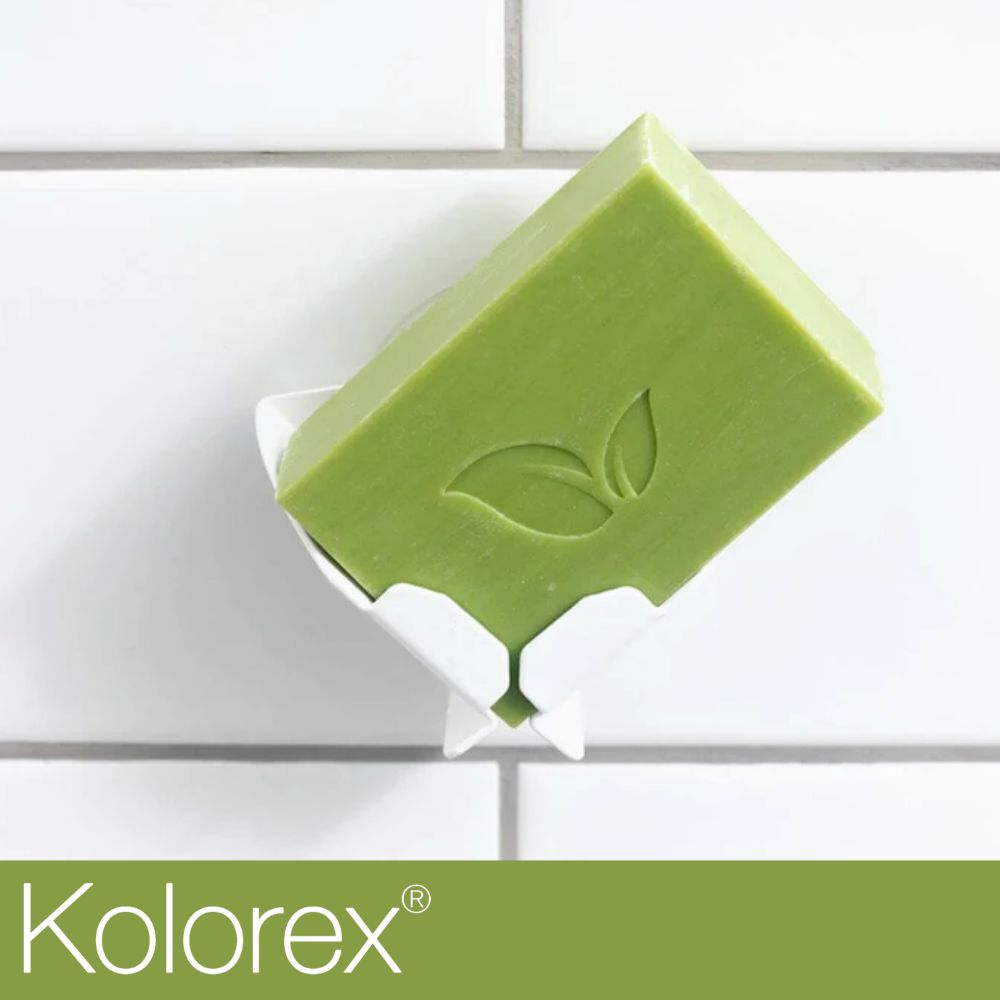We tell ourselves it’s just an itch. But if you’re losing sleep over an itchy vagina, there’s probably more going on down there. Luckily most itches aren’t a concern. And our vagina can even resolve some issues on its own. But if something has been bothering you down there, and interrupting your daily life, then it’s time for you and your doctor to investigate. From yeast infections to crabs, there’s a whole suite of causes behind the dreaded vaginal itch. Let’s talk about it – and help you ditch the itch. So you can #LoveYourLadyBits.
Getting itches and vaginal discharge?
Our vagina talks.So pay attention to the stain on your undies. Or as it’s called, discharge. Discharge is our vagina’s beautiful cleaning process. It’s also a powerful indicator of any issues that might be happening down there. Sudden changes in colour or consistency – alongside itches – are signs that your vagina’s out of balance. But there are various reasons why this might be so. Here are the top culprits behind an uncomfortable and itchy vagina.
-
Vaginal thrush
Also known as a yeast infection or candida, thrush is a common vaginal infection.
Typical signs include:
- Vaginal itching
- Thick, white and cottage cheese-like discharge
- Red and irritated skin
- A sweet or yeasty smell
In our conversation with 819 women on their brush with thrush, itchiness was the main culprit of their discomfort.
So what’s behind thrush?
Most thrush is caused by an overgrowth of the fungus, Candida albicans. While Candida is naturally found in the gut and vagina, it’s an opportunistic fungus – and can take over causing you discomfort and imbalance.
-
Bacterial vaginosis (BV)
Noticed that your undies are randomly wet – and it’s burning down there?
It could be BV. Other symptoms to look out for include:
- Watery, white or grey discharge
- Fishy odour
- Pelvic pain
- Itching in and outside of the vagina
While BV and thrush are both caused by an overgrowth of bacteria in the vagina, the treatment is different. Most noticeably, the discharge is different.
So pay attention to your symptoms – and consult a doctor to ensure you receive the right care.
-
Trichomoniasis
Heads-up, pain during sex and urination are not normal. Especially if your discharge is now yellowish-green and your itchy vagina’s giving off a strong odour. These signs point to Trichomoniasis: an infection caused by a protozoan parasite called trichomonas vaginalis.
Trichomoniasis (or ‘trich’) is one of the most common sexually transmitted diseases. And luckily, like BV and thrush, trich is totally treatable.With the right medication, a proper hygienic routine and keeping up safe sex, you’ll feel better in no time. So if you’re experiencing any of the above abnormalities, seek medical advice. Because we want you to feel comfortable and confident in your body.
But… what about other sorts of itches (that don’t tick the above boxes)?
If you’re suffering from an unbearable itch – without the other symptoms – then something else is going on.
Your itch could be due to…
-
Sweating
Sweating helps our body detox and cool. And yes! Our genitals sweat too. In fact, our vulvas house a high concentration of sweat glands. Naturally, an active day can bring on some itch. But nothing a good shower won’t wash away. A little tip: Keep some pubic hair to draw moisture away from the skin. And help prevent any unwanted irritation.
-
Hormonal changes
Our periods alone can make us feel extra irritable. And now our vaginas are itching too? We just can’t catch a break. Turns out slight itching before and during menstruation is common. Our estrogen levels freefall before our period’s – shifting the vaginal pH which could cause dryness. The good news is the itch will disappear once the estrogen rises. But remember, change your pads or tampons frequently! And if you can, choose organic menstrual products – they’re non-toxic and gentler on your skin.
-
Pubic lice
Or more commonly known as crabs. These itches are caused by tiny parasitic insects making home in your pubic hair. Despite their infamy, crabs are treatable. Usually, you’ll lather lice-killing topical creams or lotions from neck to toe. Leaving you itch-free within two weeks.
-
Skin conditions
- Vulvar dermatitis: Heat or moisture triggered, this skin condition causes redness, itching and inflammation around the vaginal opening.
- Eczema/Psoriasis: These are often long-term skin conditions. And it makes our vulvas unbearably itchy from dry, scaly and cracked skin.
- Lichen sclerosus: A chronic skin condition that creates a thin, white and wrinkly vulva or anus. As symptoms progress, people can suffer irritation, intense itching and blisters. Still of unknown origins, this condition may be linked to genetics or an autoimmune disease.
If you are displaying these symptoms but haven’t been diagnosed – don’t worry; just talk to your doctor.
An appropriate medical treatment will help manage your relentless itch.
Myth or fact: Vaginal itching comes alive at night
You’re snuggled up in bed, ready to sleep off any discomfort. Suddenly your lady bits break out in uncontrollable itches – there goes your slumber. Now you’re physically and emotionally distressed. So, is it true vaginal itching worsens at night? Not really. There’s simply less distractions at night, making us hyper-aware of our itchy vagina.
Settling the debate: vagina vs vulva
We’ve grown up calling our whole lady bits the vagina. But to give the care it deserves, we need to settle the vagina vs vulva confusion, once and for all.
Vaginas are inside the genital. A muscular tube connecting your cervix and vaginal opening. Ironically, actual vaginal itching is rare – thanks to our vagina’s self-cleaning properties.
Instead, the itches are usually from our genital’s walls: the vulva. This includes the mons pubis, labia minora and majora, clitoris and openings of the urethra and vagina.
It’s better to be proactive – not reactive
By practising these daily habits, you can keep vaginal itch under control.
-
Clean clothes and a fresh vagina
We know it’s tempting to lounge around in your damp post-workout clothes.
Especially when your muscles are feeling tender.
But wet swimsuits or sweaty gym clothes are a breeding ground for fungal growth. So if you can, change out of them right away.
And if you have ultra-sensitive skin, switching over to natural laundry detergent does wonders.
-
The secret behind wiping
It sounds super simple, but we often dismiss the proper wiping technique. Our vulva, urethra and anus are tightly nestled in to one small area. And wiping back to front can easily introduce anal germs into your vagina – causing a UTI. Remember: always wipe front to back.
-
Say no to douches
Our vagina maintains a delicate pH balanced flora. And douching or perfuming your lady bits can disrupt their balance – leaving you vulnerable to irritation. Instead, embrace your vagina’s natural musky odour. And trust her to self-clean.
-
Rebalance with a vaginal wash
It’s best to leave your vagina to its devices. But sometimes, your vulva deserves some TLC. Good old-fashioned soap is fine for our lady bits, right?
Actually, it might do us more harm than good. How? Soaps are too alkalic for our vagina’s acidic protective shield – potentially irritating our vulva’s sensitive skin.
So how should you wash your vulvas? Use a pH balanced vaginal wash that specifically formulated for use on the sensitive skin of the vulva to cleanse and freshen.
Be natural
Nowadays, when we stroll or scroll across products, the volume of ‘organic’ products is overwhelming and may put you off. But when it comes to giving the vaginal care you deserve, natural is best. So if you can:
-
Wear breathable undies
After rigorous daily activities, synthetic underwear is restricting – creating extra humidity and stickiness.
So pick up a pack of cotton and bamboo fibre undies instead.
The natural fibres will allow your vagina to breathe and absorb excess sweat.
-
Embrace natural lube
If sex feels rough down there, consider using natural vaginal lubricant.
This will help reduce dryness and friction – boosting your confidence.
Understanding you
Embrace and familiarise yourself with your lady part’s unique discharge and odour. Itches and any abnormal changes are a hint that something’s amiss. And remember, vaginal check-ups are routine – never be ashamed to ask for help. Or to share your vaginal issues.
So join our conversation about demystifying women’s health and wellness and we can empower women in prioritising their vaginal health. Join the movement to #loveyourladybits








